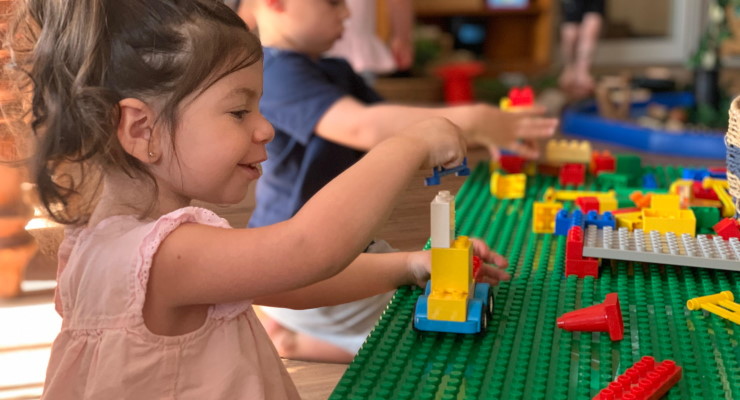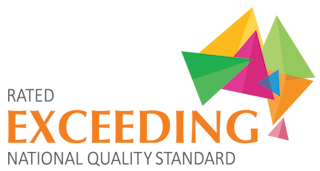At Grace Village School, our readiness program commences in our infant rooms at just six weeks old, continuing through all rooms until children reach the preschool room. We view each entire school day as an integral component of our Preschool Program. This holistic approach ensures that every moment, from the earliest stages, contributes to a child’s development, creating a seamless and immersive learning environment. The benefit lies in a comprehensive and continuous educational experience that optimally prepares children for their academic journey, fostering growth from infancy to the crucial age of six.

Preschool Curriculum
The Grace Village preschool program employs a Reggio-inspired, project-based approach to early childhood education. Teachers deliver an “emergent curriculum,” predicated on the children’s emerging interests, ideas, and questions.
Project work provides ample opportunity for discussion, decision-making, choices, cooperation, and evaluation during the course of an investigation. Projects can last days, weeks, or even months based on the children’s interests and enthusiasm.
Through these projects, teachers routinely plan and deliver various educational experiences, which incorporate emergent literacy, music, art, dramatic play, motor development, math, nature, and science.
Our child-centred approach to preschool means children are active participants in the learning process. Through collaboration, shared experiences, and in-depth exploration of unique projects, little villagers develop a rich understanding of the topics that they are investigating.
By learning through projects, children establish the ability to become “masters” of knowledge related to specific topics – a skill that will serve them well as they enter school and beyond.
A qualified teacher ensures that children are offered broad school experiences in the following content areas:
- Literacy
- Music
- Mathematics
- Art
- Science
- Physical Education
- Foreign Language
- Dramatic Play
- Technology/ Robotics
The Grace Village Prep-school Kindergarten program offers a safe and nurturing environment in which to build confidence, express creativity, and enjoy learning.

Classroom Environments
The environment of the classroom (classrooms, common spaces, and outdoor and indoor play areas) is viewed as the “third teacher.” The environment is a reflection of the children, teachers, and parents who live and learn there. It is thoughtful, imaginative, enticing, and respects the image of the child.
Documentation
Children’s work is documented for every child through individual portfolios, and learning experiences are also communicated using Xplor, project walls and more. The preschool experience may also include excursions that allow students to extend their learning into the community.
Such outings provide the opportunity to research and collect data to bring projects to life and enhance the depth of knowledge that is shared through documentation.

Is my child ready for school?
We use some of the basic guidelines to determine your child’s school readiness
Preschool Readiness Checklist:
- Being emotionally and socially ready is one of the most important criteria for the school. Children should be able to handle their emotions, meaning they know their feelings, but have coping strategies to tackle ups and downs. This also includes being able to not only cooperate with peers but respect non-family authority figures.
- Mastering acquired motor skills. Motor skills are the basis for many school activities. Large muscle skills include walking in a straight line, throwing a ball, jumping and climbing. Small muscle skills include drawing, colouring, cutting, fitting together puzzle pieces and beginner handwriting.
- Being cognitively and intellectually ready for school facilitates a smooth transition. These skills typically include knowledge of colours, numbers, shapes and some or all of the letters in the alphabet. Other skills include understanding similarities, differences and opposites.
- Showing enthusiasm and eagerness to learn. Children that know to ask questions, think independently and be creative are most successful in kindergarten. A sense of curiosity about the world, the environment, how things work, and how to creatively approach problems is a great sign of kindergarten preparedness.
The goal of our School Readiness program is for children to:

Discover more about our school readiness program
Join our Centre Director for a 30 minute guided tour of Grace Village Early Learning and find out more about your child’s transition to school

